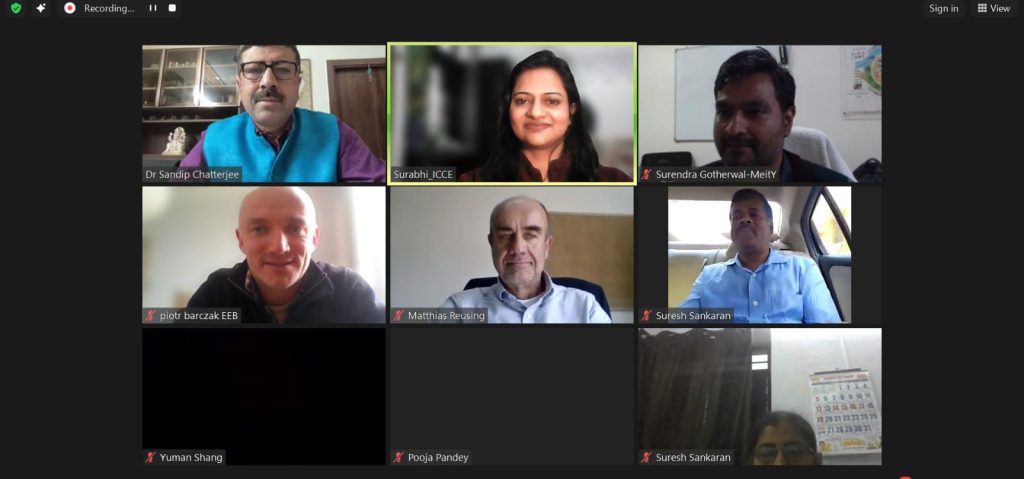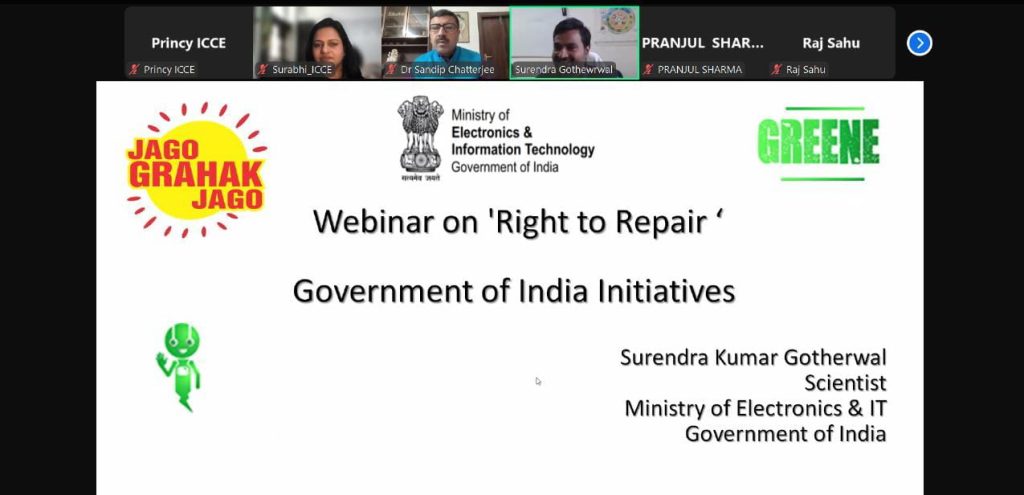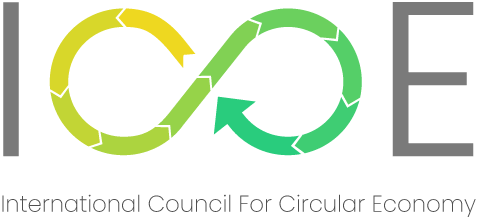
Webinar Series ‘Circularity in WEEE’ Highlights Global Best Practices in E-Waste Recycling
New Delhi, India - December 13th, 2024 and January 17th, 2025
The International Council for Circular Economy (ICCE), in collaboration with Sustainable Electronics Recycling International (SERI) and supported by the Ministry of Electronics and Information Technology (MeitY), successfully organized two highly impactful webinars as part of the ongoing series ‘Circularity in WEEE’. These webinars brought together global stakeholders to discuss the importance of responsible recycling, explore innovative solutions, and promote best practices in managing Waste Electrical and Electronic Equipment (WEEE) effectively.
This webinar will provide valuable insights from industry experts, creating a platform for knowledge-sharing and fostering a commitment to sustainable e-waste management aligned with the R2 Standard.
Webinar 1: ‘Responsible Recycling: R2 Guidelines and its Importance’
On December 13, 2024, the first webinar in the series was focused on the R2 (Responsible Recycling) Guidelines, a critical framework in sustainable e-waste management. Key takeaways from the session included:
- An comprehensive overview of the R2 standards, explaining their importance for businesses and the progress of R2 implementation in India.
- Valuable insights into the evolution of the R2 standards (R2v1, R2v2, R2v3) and the challenges faced in R2v3 implementation.
- The challenges of e-waste recycling in Sudan, offering a unique perspective on the difficulties in his region.
- Innovative e-waste recycling practices from Indonesia and explored opportunities for improving e-waste management in developed markets.

Webinar 2: ‘Global Best Practices in the Management of WEEE’
On January 17, 2025, the second webinar in the series focused on global best practices for WEEE management, featuring experts from various organizations to explore the broader implications of the Right to Repair Act. Key insights from this webinar included:
- Sustainable Electronics & Circular Economy: The session explored how the Right to Repair could extend the lifespan of products, reduce waste, and contribute to sustainability.
- Legal & Environmental Implications: Experts discussed the legal frameworks surrounding repair rights and the environmental benefits of empowering consumers to repair their own devices.
- Right to Repair & Data Security: A crucial discussion on how the intersection of repair rights and consumer data protection affects sustainability efforts.
- Global Initiatives & Policies: The webinar examined international policies and initiatives surrounding the Right to Repair and e-waste management.
- Role of Skilled Repairers: Emphasizing the need for skilled repair professionals to maintain products and support sustainability.
- Samsung’s Circular Economy Commitment: An in-depth discussion on how global corporations, such as Samsung, are aligning with circular economy principles.
- South-South Twinning, Green & Digital Transformation: Experts highlighted the importance of collaboration between emerging economies to drive green and digital transformation in e-waste recycling.

By focusing on the principles of circularity and sustainability, this webinar aims to inspire transformative change in WEEE management, contributing to a healthier planet and a more resource-efficient future.
